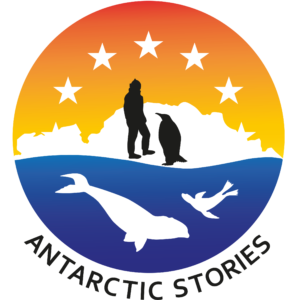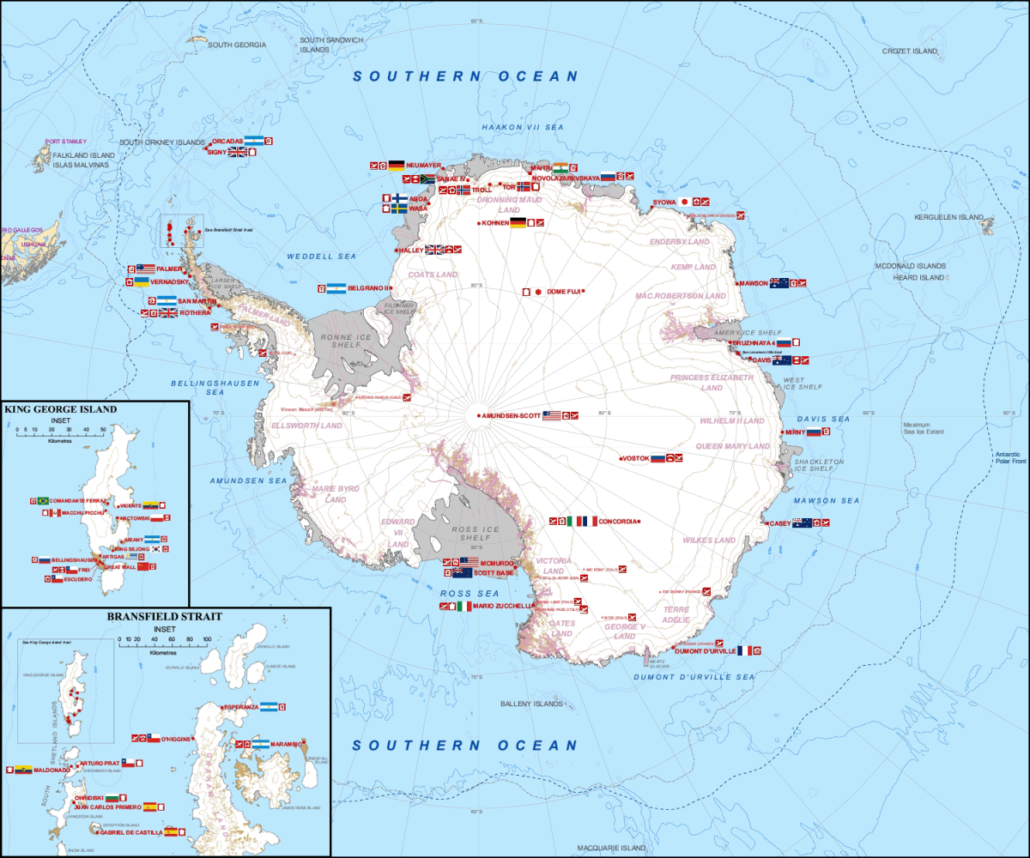Map source: Antarctica_Station_South_Pole_Amundsen-Scott.png

Many European countries have polar research programmes and several operate research stations in Antarctica. Some of these stations are open all year round; others are summer-only research camps. Find out more about the programmes and the stations via the links below.
Belgium, Princess Elisabeth, International Polar Foundation, Queen Maud Land
Bulgaria, St. Kliment Ohridski, Bulgarian Antarctic Institute, Emona Anchorage Livingston Island
Czechia, Johann Gregor Mendel, Masaryk University, James Ross Island
Finland, Aboa, Finnish Antarctica Research programme, Queen Maud Land
France, Dumont d’Urville, IPEV (Institut polaire français), Adelie Land
France & Italy, Concordia, National Antarctic Research Program and IPEV, Dome C Antarctic Plateau
Germany, Dallmann Laboratory, Carlini Station, Alfred Wegener Institute, King George Island
Germany, Kohnen Station, Alfred Wegener Institute, Queen Maud Land
Germany, Neumayer III, Alfred Wegener Institute, Atka Bay
Italy, Mario Zucchelli, National Antarctic Research Program, ENEA, CNR, Terra Nova Bay
Netherlands, Dirck Gerritsz Laboratory at British Antarctic Survey Rothera Station
Norway, Troll, Norwegian Polar Institute, Queen Maud Land
Norway, Tor, Norwegian Polar Institute, Queen Maud Land
Poland, Arctowski, Polish Academy of Sciences, King George Island
Spain, Juan Carlos 1 & Gabriel de Castilla stations, Spanish National Research Council, Deception & Livingston Islands
Sweden, Svea, Swedish Polar Research Secretariat, Queen Maud Land
Sweden, Wasa, Swedish Polar Research Secretariat, Queen Maud Land
United Kingdom, Halley VI, British Antarctic Survey, Brunt Ice Shelf
United Kingdom, Rothera, British Antarctic Survey, Brunt Ice Shelf
United Kingdom, Fossil Bluff, British Antarctic Survey, Alexander Island
United Kingdom, Signy, British Antarctic Survey, Signy Island South Orkney Islands



